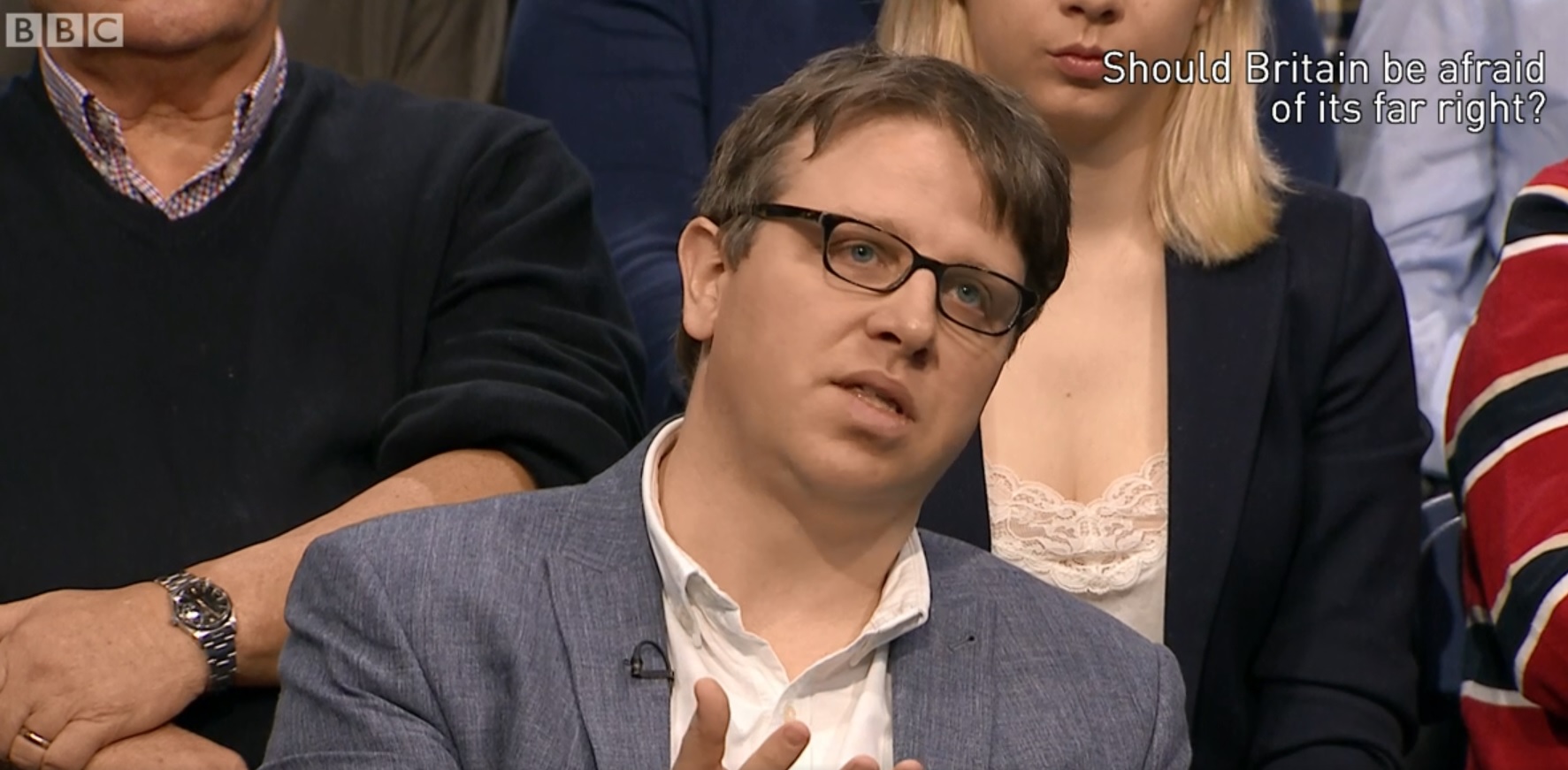Remembering the Holocaust in an era of Covid
Date 21.01.2022
21.01.2022
The way anti-vaxxers and politicians have abused the memory of the Nazi past during the Covid era has been criticised by a University of Northampton historian.
Professor in the History of Radicalism and Extremism, Dr Paul Jackson, has written a blog for Holocaust Memorial Day, which falls on Thursday 27 January.
In it, Dr Jackson, points to a former nurse addressing a London rally, who likened NHS doctors and nurses to Nazi-era medical professionals; a Tory MP who criticised vaccine passes by telling BBC Radio 5Live that ‘we are not a “papers please” society. This is not Nazi Germany’; and anti-vaxxer Piers Corbyn distributing a leaflet depicting the famous gates at Auschwitz which bore the slogan ‘Arbeit Macht Frei’, which translates as ‘Work Makes you Free’. In Corbyn’s anti-vaccination leaflets these words were replaced with the slogan ‘Vaccines Make you Free’, an effort to liken the vaccination programme to the Holocaust.
Dr Jackson said: “For those who seek to promote liberty and freedom in times of Covid, and who want to criticise what they see as too many restrictions being imposed by governments, an emotive, skewed memory of the Nazi past is being used to make blunt, emotive points about the responses to Covid.”
Here’s the blog:
Remembering the Holocaust in an era of Covid
We live in unusual times and have done for many months now. Often when people live through times of profound change, they find the past can offer reference points and examples that help make sense of situations that are unsettling and confusing. Sometimes this can be helpful, other times not so.
As Holocaust Memorial Day events unfold around the 27 January, it offers opportunities for reflection on the horrors of the Nazi genocide and how the issues it raises resonate with the present day. However, this also highlights how the memory of the Nazi past has been abused in crass and tasteless ways during the recent pandemic.
As countless history books have explained, the Nazi regime was very unusual and focused on targeting Jewish people, who were deemed a specific threat to the regime, and so it developed policies to create a Europe free of Jewish people. In the 1930s it tried primarily to encourage Jewish people to leave Germany, and by the Second World War this ambition resulted in the creation of mass killing centres, and dedicated militarised units, for killing Jewish civilians across Europe on an industrial scale.
The Nazi genocide also extended its ‘licence to hate’ to many others. Black Germans, Roma communities, LGBTQ+ and especially gay men, those with mental health conditions and many the regime deemed politicly suspect were targeted, with many killed. This was all part of a project to somehow ‘purify’ Germany, and European society, of those deemed other and threatening. People in many other countries collaborated too, from France and the Netherlands to Romania, Croatia and Hungary.
While this past must be remembered, it needs to be remembered with care and sensitivity, especially for those who were targeted by this horrific regime and its various allies and collaborators. Yet today we see much abuse of the memory of the Nazi past among those who want to criticise government responses to the Covid pandemic.
To give a few examples, last July, a former nurse Kate Shemirani addressed a rally in London likening NHS doctors and nurses to the Nazi-era medical professionals put on trial and executed for collaborating with the regime. In December, when criticising the idea of vaccine passes, Conservative MP Marcus Fysh told BBC Radio 5Live that ‘we are not a “papers please” society. This is not Nazi Germany’. Perhaps most strikingly, in February 2021 Piers Corbyn distributed a leaflet depicting the famous gates at Auschwitz which bore the slogan ‘Arbeit Macht Frei’, which translates as ‘Work Makes you Free’. In Corbyn’s anti-vaccination leaflets these words were replaced with the slogan ‘Vaccines Make you Free’, an effort to liken the vaccination programme to the Holocaust.
For those who seek to promote liberty and freedom in times of Covid, and who want to criticise what they see as too many restrictions being imposed by governments, an emotive, skewed memory of the Nazi past is being used to make blunt, emotive points about the responses to Covid. Debate is important but the Nazi era is not helpful. What ought to be apparent to anyone with any sensitivity to the Nazi past is that this history was quite different from any aspects of how the pandemic is being dealt with, and so is not relevant in making sense of today’s problems.
In the Nazi era, doctors did engage with the regime, but then many found freedom in its disregard for medical ethics and developed a range of extreme approaches to medicine, including wilfully killing people. Today in contrast, the scientists and healthcare professionals who have developed and administered vaccines have done so to save lives, not to kill people. In the Nazi past, government restrictions were used, for example to round up Jewish people into manageable spaces, from where they were then often subsequently murdered at dedicated sites of mass killing. Today restrictions are being developed not to facilitate mass killing but to help protect people from a highly infectious and potentially deadly virus.
So as Holocaust Memorial Day approaches, we should pause for thought on how emotive and caricatured memories of the Nazi era have been abused in recent times, in ways that do not help us either understand the past or engage sensibly with problems that face us today. We face many challenges, and are likely to for some time to come, but we do not, thankfully, live in a time where a government is developing genocidal policies to kill millions of people.
Find out how the University is marking Holocaust Memorial Day.